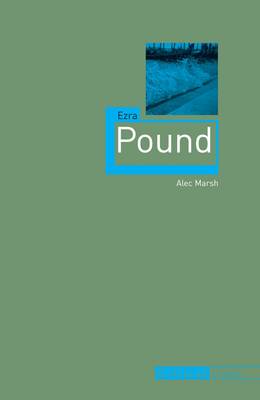Critical Lives
1 total work
Ezra Pound's co-poet Basil Bunting wrote of "The Cantos": 'There are the Alps,/fools! Sit down and wait for them to crumble'! "Ezra Pound" tells the story of one the most controversial poets of the twentieth century. Great poet, Confucian, peace activist, alleged fascist, indicted traitor, Ezra Pound's life raises vital questions for anyone interested in politics, art and poetry. Probably no-one has promoted so many other great writers as Pound - James Joyce, T.S. Eliot and Ford Madox Ford among them - and without Pound's generosity to colleagues, literary modernism arguably might not have happened. Yet by 1925 Pound was living in obscurity in Italy, having trouble publishing his work. There he became a Mussolini enthusiast and a believer in a malevolent Jewish/Communist conspiracy. As the global economic crisis worsened through the thirties, Pound used The Cantos, his monumental magnum opus, to historicize the causes of the world crisis and to suggest a cure, agitating obsessively for a 'new economics' to prevent another World War.
Indicted for treason by the us, after the war Pound was judged incompetent to stand trial and remanded to a Federal mental hospital where he remained until 1958, still furiously active on the American right. What happened? How could such a great modern artist hold apparently reactionary views? Was he a traitor? Was he, in fact, insane? If so to what extent, and when did it begin? Was there any validity in his economic ideas? Alec Marsh addresses these crucial questions as he probes the relation between poetry and politics. Analysing Pound's prose and poetry as well as "The Cantos", Marsh provides clear insights into Pound's work as well as a coherent account of his life. Essential reading for students of twentieth-century poetry as well as those intrigued by Pound but who know little about his work.
Indicted for treason by the us, after the war Pound was judged incompetent to stand trial and remanded to a Federal mental hospital where he remained until 1958, still furiously active on the American right. What happened? How could such a great modern artist hold apparently reactionary views? Was he a traitor? Was he, in fact, insane? If so to what extent, and when did it begin? Was there any validity in his economic ideas? Alec Marsh addresses these crucial questions as he probes the relation between poetry and politics. Analysing Pound's prose and poetry as well as "The Cantos", Marsh provides clear insights into Pound's work as well as a coherent account of his life. Essential reading for students of twentieth-century poetry as well as those intrigued by Pound but who know little about his work.
